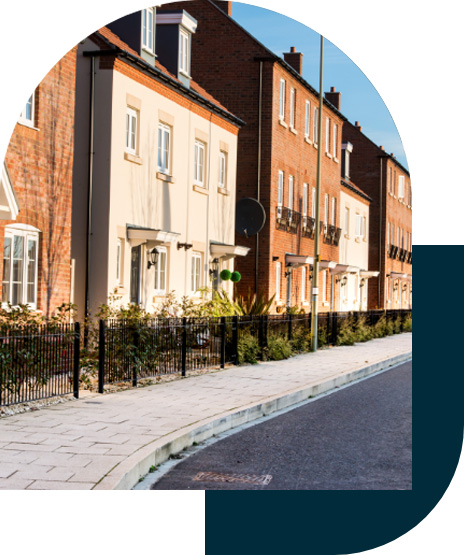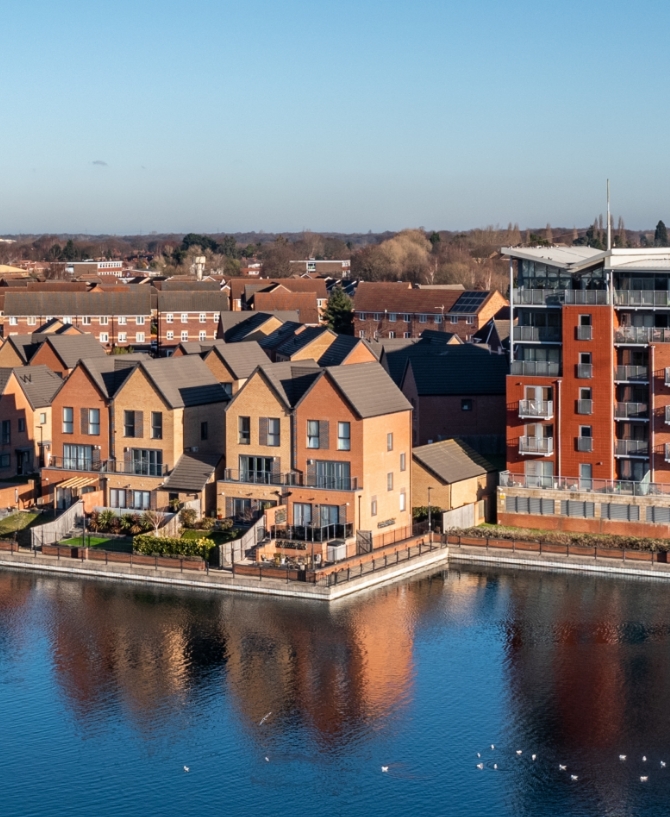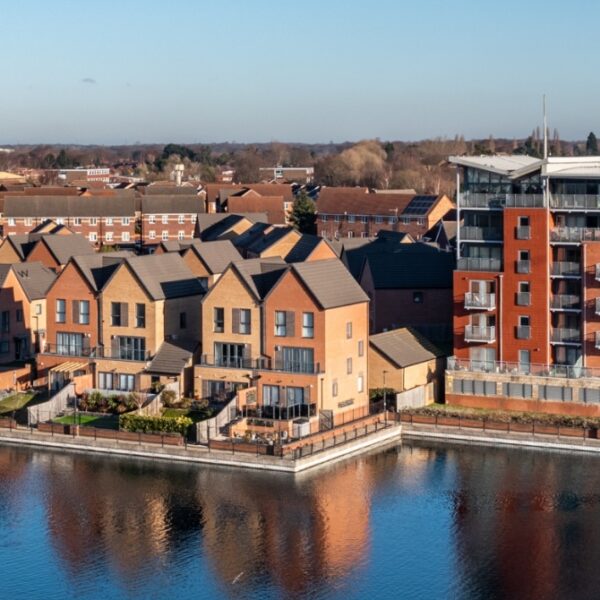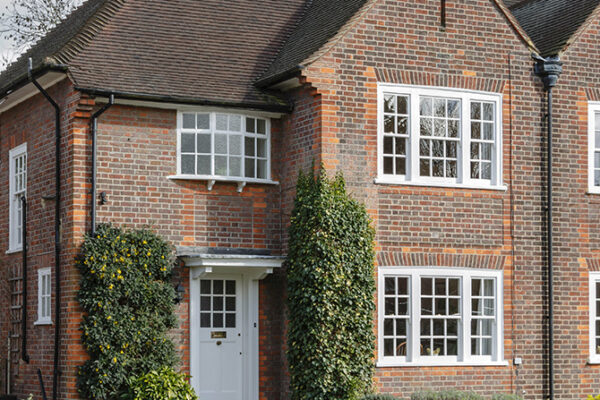What is the new build conveyancing process?
The conveyancing process starts as soon as you have secured your new build home or plot. You should instruct a solicitor as early on as possible. The process is as follows:
1. Secure the property/plot
The first stage is to secure the property. For new builds, this usually involves paying a reservation fee to the developer when you make an offer to buy the house. This protects your right to go ahead with the purchase for a specified period of time, usually 28 days, and prevents the developer from selling your plot to another potential buyer. This reservation also gives you the right to withdraw from the proposed purchase within the time frame.
The Reservation fees are set by the developer. The amount will be deducted from the final amount that you will pay for the property when the sale completes. However, if you pull out of the purchase, you will lose the reservation fee. We advise before paying the reservation fee, to have your mortgage agreement in principle.
You should be issued with a reservation agreement from the developer for you to sign.
The reservation agreement should include details of the following:
- The purchase price.
- Any incentives which are being provided by the developer this can be anything from carpets, to a contribution towards legal fees or stamp duty
- If there is a management company on the estate this will details any anticipated annual fees (this can be applicable on freehold and leasehold properties)
2. Instruct HSR Law
As soon as you have reserved the property, you should contact HSR Law to manage the purchase of your property from the developer. HSR Law will correspond with the developers’ solicitors to obtain a contract pack and will raise any issues that we come across.
HSR Law will:
- Check planning & building regulations approvals.
- Ensure that the property has the relevant rights to utilise gas, electricity, water and drainage and to ensure that the same will be adopted.
- Check for any restrictive covenants.
- Ensure that you will benefit from a new build warranty, such as NHBC, which is the most common provider. (We will also ensure that the provider is approved by your lender).
- Establish if the property is leasehold or freehold.
- Conduct local authority searches.
- Check the conditions of your formal mortgage offer.
3. Exchange
Once HSR Law are happy that all issues have been resolved, we will exchange contracts with the developer’s solicitor. At this stage, you will also be required to pay your deposit, which is typically 10% of the full purchase value. HSR Law will transfer this amount to the developer’s solicitor. You will also need to sign a contract stating that you agree to purchase the property at the current asking price and to pay off the balance upon completion.
4. Completion
The final stage is completion. For new builds, completion is usually on notice, this means that when you exchange you do not know when you will be completing as 9 times out of 10 the property is still in the construction phase. Once the property is ready for occupation the developers solicitors will issue a notice to us. The notice usually states that completion must then be no later than 10 working days.
Within the 10 days, you should ensure that you have arranged your tour of the property and you instruct a surveyor to carry out a snagging report, or you can carry out a snagging list yourself. A snagging list is completed and provided to the developer (within a certain time frame) to notify the developer of any cosmetic or structural issues with the property. For example, smudged paint work, faulty roof, or a leaky tap or shower for instance.
The developer should then work to fix any of the issues brought up in the snagging report.
Once completion has taken place will arrange payment of stamp duty (if applicable), along with submitting an application to the Land Registry. HSR Law will also register your ownership with the NHBC (or other warranty provider) and forward your guarantee certificate to you.
Why is New Build conveyancing more complex than a standard purchase?
New build transactions are more complex than other types of conveyancing as there a higher number of risks to consider which could include:
- Non-compliance with planning regulations.
- Failure to arrange NHBC (or other warranty) inspections.
- Developers failing to complete agreements for roads and sewers.
- Homes being built not in accordance with the original plans.
HSR Law have the expertise in purchasing new builds and are here to guide you for through the whole process detailed above.

We are CQS Accredited
The Conveyancing Quality Scheme (CQS) accreditation demonstrates that HSR Law Solicitors can provide residential conveyancing advice of the level expected by clients, lenders and the wider residential conveyancing community.
Being CQS accredited means we have the expertise to deliver quality residential conveyancing advice and use standardised processes to manage and reduce risks.
Your New Builds Team
Property FAQs
Exchange means that your contract to purchase is now legally binding. If you withdraw from the sale, you will lose the deposit you paid. On exchange you also set the date for completion.
No, your Lenders grant the mortgage but they ask us to confirm that the valuation has no errors and that there are no issues with the property that they should be informed of. It is our job to ensure that both you and your Lender are happy to proceed.
Someone over 18 has to witness your documents and no one that is related to you
The ISA can only be used as part of completion funds to pay the balance of the property. It cannot be used as the deposit. Your buyer’s solicitor may agree to accept a lower deposit on exchange. Your solicitors can charge £50 plus VAT for applying for this for you.
If you are a cash buyer this is your choice, but HSR Law would always advise that you do obtain searches . If you are purchasing with the aid of a mortgage, this is mandatory. The main searches are as follows:
Local Authority
A local authority search will provide you with detailed information about your property and the surrounding areas including planning entries and road adoptions. This will give you peace of mind before going ahead with the purchase of your new home and ensure you avoid any surprises in the future
Water and Drainage
A water and drainage search will confirm the proximity of the property to public sewers, whether the property has a sewer running within the boundaries of the property and if the property is connected to mains services.
Environmental search
An environmental search would confirm whether the previous land use of the property creates a potential environmental risk. This search will highlight issues which would include:
Landslides
Subsidence
Contaminated land such as historic landfills and waste sites
The risk of flooding from nearby rivers or seas
Mining search
A mining search is required if the property is situated in an area of previous or current mining history and is at risk of being built on unstable ground.
If you hold the property as joint tenants, both of you will own the whole of the property. You will not each have a quantified share in the property and will not be able to leave a share of the property in your will. If you sell the property, or if you separate, it will be presumed that you both own the property equally.
If you hold the property as tenants in common, each of you will own a specified share in the property. For example, one owner could own 70% of the property while the other holds 30%. The percentage shares are commonly used to reflect the amount of money contributed.
If you buy a property freehold, it means you completely own the property and the land it sits on
When you buy a property that is leasehold, you own it for a set length of time, which is the term of the lease.
Click here to read our Freehold vs Leasehold factsheet.
Our Latest Residential Property News
- A quick guide to remortgagingRemortgaging is the process of switching your existing mortgage to a new deal, either with your current lender or a different one.
- Traditional v Modern AuctionsExploring and comparing the difference between traditional and modern method auctions when purchasing property.
- Stamp Duty Changes from 1st April 2025Significant changes to Stamp Duty Land Tax (SDLT) are being implemented from 1st April 2025.
- Freehold vs LeaseholdThe difference between freehold and leasehold properties.















